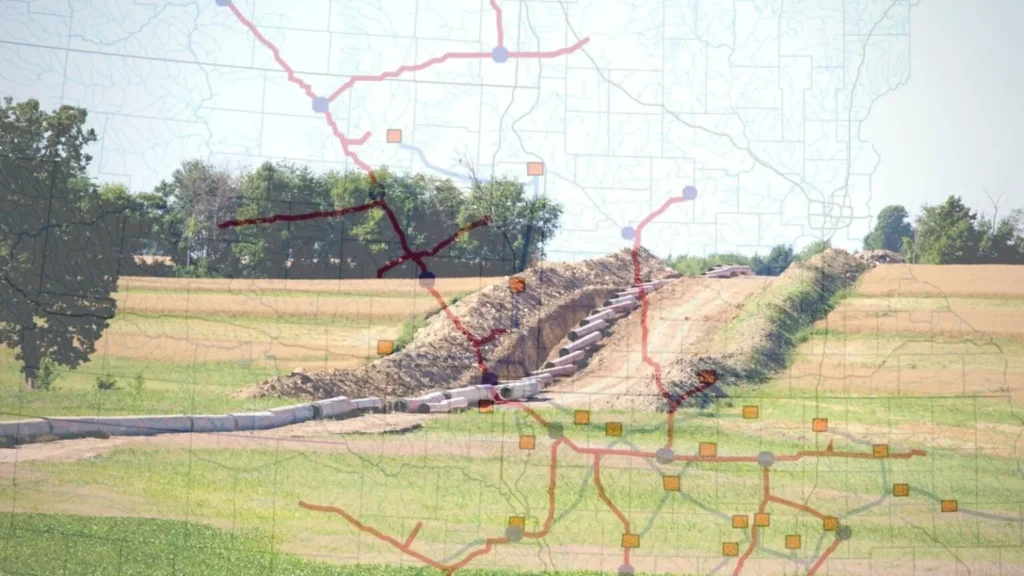Montevideo, MN, August 7, 2023 — On Friday, August 4th, the North Dakota Public Services Commission (NDPSC) voted 3-0 to deny Summit Carbon Solutions’ (Summit) application to construct a carbon dioxide (CO2) pipeline in the state. The NDPSC’s order stated that Summit: “Failed to meet its burden of proof to show that the location, construction, operation and maintenance will produce minimal adverse effects on the environment and the citizens of North Dakota.”
In making their decision, the NDPSC found that Summit failed to provide several alternative routes, did not properly address geologically unstable areas, did not mitigate impacts on some waterfowl protection areas along the route, and did not adequately address impacts on cultural resources as related to Tribal lands. The NDPSC also expressed concern that Summit only provided for 500-foot setbacks from residences, schools, and places of business.
NDPSC Chairman Randy Christmann said after the vote that Summit could choose to start over and reapply or appeal the decision to the North Dakota courts. Either way, the process will keep Summit from starting construction in 2023, as originally planned. Summit will need to obtain a separate permit for injecting any CO2 transported by pipeline into underground storage areas for the compressed CO2.
In Minnesota, Summit has an active permit application before the Minnesota Public Utilities Commission (MN PUC) for a segment of its proposed five-state, 2120-mile CO2 pipeline project. This section, currently under review by the MN PUC, would extend from Fergus Falls to the North Dakota border at Breckenridge. CURE legal staff have been involved in the MN PUC permitting process and federal rulemaking to update safety regulations for these types of pipelines.
“The MN PUC should see this rejection by a sister-state regulator as a ‘red flag’ and not rush to approve a project not supported by sufficient evidence of its value or safety,” said Sarah Mooradian, Government Relations and Policy Director for CURE, a rural organization that has been fighting the project in Minnesota. Mooradian continued, “Waiting for federal safety regulators to update their standards for CO2 pipelines could be an even more prudent action.”
Currently, the Pipeline and Hazardous Materials Safety Administration (PHMSA), the federal agency tasked with regulating the safe operation of pipelines, is in the process of updating its CO2 pipeline specific regulations in response to the rupture of a pipeline carrying CO2 that occurred in Satartia, Mississippi, in February 2020. Mooradian stated, “Until federal safety regulators finish this review of the safety regulations, the MN PUC should not rush to permit this pipeline in Minnesota. Especially since without the North Dakota permitting completed, the Minnesota section has nowhere to send the toxic CO2 waste for hypothetical sequestering.”
CURE has been working since the fall of 2021 to support people in rural places in understanding the unique risks and challenges CO2 pipelines pose to humans and rural landscapes. “This is a win for the rural communities and Tribes all across the five-state footprint who have raised their growing concerns about safety, setbacks, community health and well-being, and Summits’ ability to actually sequester greenhouse gas emissions,” said Peg Furshong CURE’s lead organizer against the CO2 pipelines, “Minnesota does not have the time, energy, or hope to waste going down the wrong path on climate and clean energy. We hope the MN PUC sees the folly in moving forward on this dangerous pipeline to nowhere.”
More information:
NDPSC’s decision rejecting Summit’s Application— https://www.psc.nd.gov/database/documents/22-0391/366-010.pdf
Additional info about CO2 pipelines: www.carbonpipelinesmn.org
CURE is rural-based, with staff across Minnesota. CURE knows rural people, lands, and ecosystems are vital to helping solve some of the biggest problems Minnesota and the country face. We help to tell the story of a vibrant rural future, lift-up people to lead, and work for policies and laws to make a better future possible for everyone.
###


